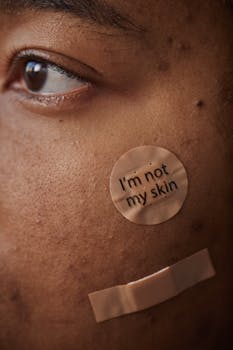
More Beauty Skin Care & Gorgeous Smiles Articles
Can Tretinoin Effectively Reduce Acne Scars?

Many individuals struggling with acne often wonder, does tretinoin work on acne scars? Tretinoin, a derivative of vitamin A, is widely used to treat acne, but its efficacy in reducing acne scars remains an intriguing question. In this article, we’ll explore how tretinoin might help with acne scars and what you should consider when using this treatment.
Does Tretinoin Work on Acne Scars?
Tretinoin is primarily known for its ability to accelerate skin cell turnover, potentially improving the skin’s texture and reducing the appearance of acne over time. As for acne scars, tretinoin may help by promoting the exfoliation of the skin, which can lead to a smoother surface. Let’s delve deeper into how tretinoin works and its effectiveness on acne scars.
The Mechanism of Tretinoin
Tretinoin works by stimulating the production of new skin cells, which can aid in the repair of skin damaged by acne. This increased cell production can potentially fill in and smooth out scar tissue from acne outbreaks. Additionally, tretinoin helps unclog pores, reducing the likelihood of future breakouts and contributing to a clearer complexion.
Efficacy of Tretinoin on Different Types of Acne Scars
There are several types of acne scars, including atrophic scars, hypertrophic scars, and post-inflammatory hyperpigmentation. While tretinoin is generally more effective on post-inflammatory hyperpigmentation due to its exfoliating properties, its effect on atrophic and hypertrophic scars may be limited. Studies suggest that tretinoin can enhance skin texture and reduce discoloration, but deeper scars may require additional treatments like lasers or fillers.
Complementing Tretinoin with Other Treatments
To enhance the efficacy of tretinoin, it might be beneficial to combine it with other treatments. Options include chemical peels, microneedling, and laser therapy, which can act synergistically with tretinoin to improve the appearance of acne scars. It’s critical to consult with a healthcare provider to customize a treatment plan suitable for your skin type and scar severity.
Possible Side Effects and Considerations
When using tretinoin, some users may experience side effects such as redness, peeling, and irritation, especially if applied in higher concentrations. To minimize these effects, start with a lower concentration and gradually increase as tolerated by your skin. It’s also essential to use sunscreen, as tretinoin can make your skin more sensitive to UV rays.
Integrating Holistic Approaches
In some cases, integrating holistic approaches alongside traditional treatments can be beneficial. Mindful skincare practices, nutrition, and stress management can all play a role in improving skin health. For more insights into integrating holistic methods with traditional treatments, check out this article on holistic and traditional medicine.
Conclusion: Does Tretinoin Work on Acne Scars?
In conclusion, while tretinoin may not completely erase acne scars, it can improve the overall texture and tone of the skin, making scars less noticeable. Its exfoliating properties are particularly beneficial for post-inflammatory hyperpigmentation. If you’re considering using tretinoin for acne scars, it’s best to consult a dermatologist to tailor the approach to your specific needs. For a broader view of skin health, visit the informative Wikipedia page on health.
- Tretinoin can help improve skin texture and reduce hyperpigmentation.
- It is particularly useful for post-inflammatory hyperpigmentation, but less so for deep scars.
- Consult your dermatologist to discuss combined treatments for enhanced results.
- Start with lower concentrations of tretinoin to minimize side effects.
- Consider holistic approaches to complement tretinoin treatment.
FAQs
How long does it take to see results with tretinoin?
Results can vary, but many people start noticing improvements in skin texture and tone after 8 to 12 weeks of consistent use.
Can tretinoin prevent future acne outbreaks?
Yes, by promoting cell turnover and unclogging pores, tretinoin can help reduce the frequency of future acne breakouts.
Is tretinoin suitable for all skin types?
Tretinoin can be used by most skin types, but those with sensitive skin should proceed with caution and consult a dermatologist.
Can tretinoin be used in conjunction with other acne treatments?
Yes, tretinoin can be combined with other treatments like benzoyl peroxide or topical antibiotics, but it’s best to follow a dermatologist’s advice.
Should tretinoin be used during the day or night?
Tretinoin should be applied at night as it can increase skin sensitivity to sunlight. Ensure to use sunscreen during the day to protect your skin.
Other Articles You May Find of Interest...
- Retinol vs Vitamin C for Dull, Uneven, or Dry Skin: What Dermatologists Recommend
- Sofwave Pure Impact: A Noninvasive Way to Firm Skin and Smooth Wrinkles
- How Modern Aesthetic Treatments Support Confidence and Emotional Wellbeing
- How Dewitt Pharma is Transforming Texas Medspas with Trusted Injector Resources
- The Art of Timeless Beauty: Modern Facial Rejuvenation Techniques
- 5 Ways Exosomes Are Changing Skin and Wellness Treatments in 2026
- 5 Popular Cosmetic Treatments That Require Little to No Downtime














